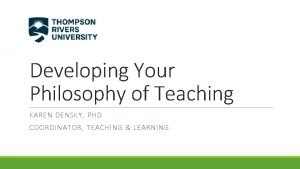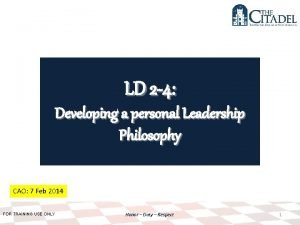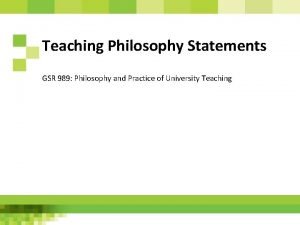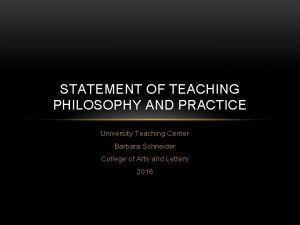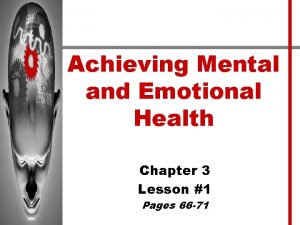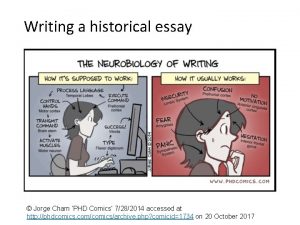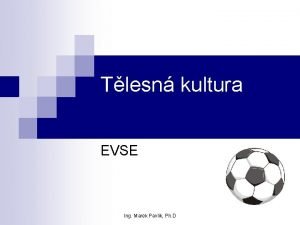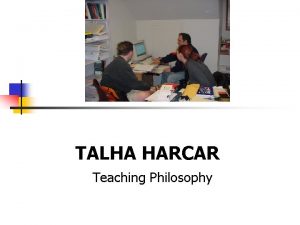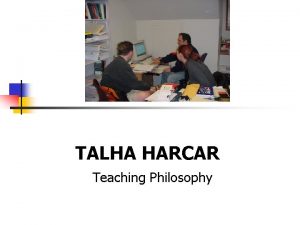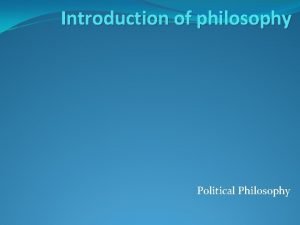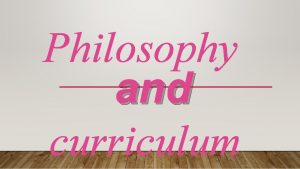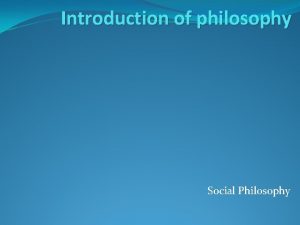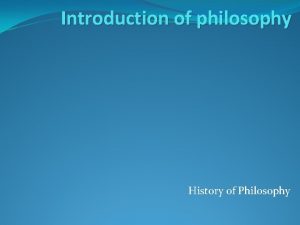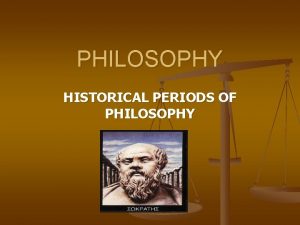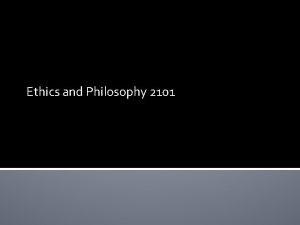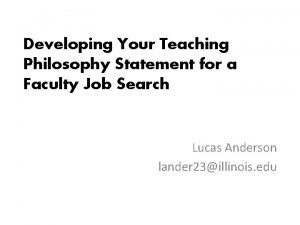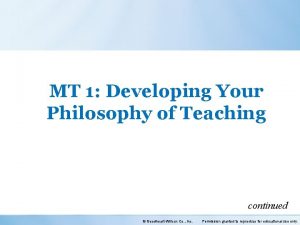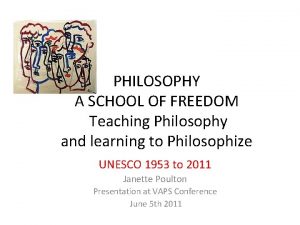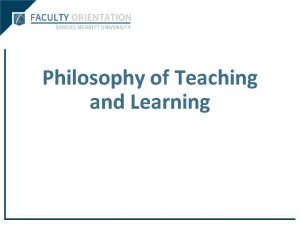Developing Your Philosophy of Teaching KAREN DENSKY PHD


















- Slides: 18

Developing Your Philosophy of Teaching KAREN DENSKY, PHD COORDINATOR, TEACHING & LEARNING

Outline 1. What is a POTS? 2. Why do I need one? 3. What does a good one look like? 4. How do I write one?

What? A teaching philosophy is a self-reflective statement of your beliefs about teaching and learning. It should also discuss how you put your beliefs into practice by including concrete examples of what you do or anticipate doing in the classroom. (https: //cei. umn. edu/support-services/tutorials/writing-teaching-philosophy)

How long? A Philosophy of Teaching Statement should be 1 page single spaced or 2 pages double spaced

Why? v. To concisely gather together your beliefs about teaching and learning so that you can easily articulate them to your students, your peers, and search committees. v. An introduction to your teaching portfolio, thus setting the stage for the reader of that portfolio. v. A means to professional growth because it requires you to give examples of how you enact your philosophy, and requires you to consider the degree to which your teaching practice connects to your beliefs about teaching and learning. (https: //cei. umn. edu/support-services/tutorials/writing-teaching-philosophy)

Examples Samples available from: v. History v. Biology v. Education v. Chemistry https: //cei. umn. edu/support-services/tutorials/writing-teaching-philosophy/teaching-philosophy-samples#education

More Examples v. Nursing v. Anthropology v. Social Work v. Business v. Communications v. Music http: //www. fctl. ucf. edu/facultysuccess/professionalportfolios/philosophies. php

Rubric for Philosophy of Teaching Statement Meeting Expectations Somewhat Meeting Expectations Not Meeting Expectations Purpose & Audience Clear focus or theme Appropriate tone Free of clichés Holds attention Voice Authentic (“I”) Reveals self Demonstrates investment Demonstrates enthusiasm Beliefs & Illustrative Examples Clearly stated beliefs Rationale for beliefs Connection between ELT and teaching & learning Specific examples of strategies, methods, or theories Conventions Headings, paragraphs, transitions Appropriate length & thematic style Distracting grammar, spelling errors

Key Question #1 How do people learn?

Key Question #2 How do I facilitate that learning?

Key Question #3 What goals do I have for my students?

Key Question #4 Why do I teach the way that I do?

Key Question #5 What do I do to implement these ideas about teaching and learning in the classroom? Give specific examples.

Key Question #6 Are these things working? How do I know?

Key Question #7 Do my students meet the goals? How do I know?

Key Question #8 How will you continue to grow as a teacher?

Literary Elements v. Using metaphors v. Be consistent v. Be unique v. Common metaphors: gardening, traveling, building, farming v. Using quotes v. Frame the statement with a quote or v. Connect the quote throughout the POTS

References University of Central Florida. (2017). Sample Teaching Philosophies. Retrieved from: http: //www. fctl. ucf. edu/facultysuccess/professionalportfolios/philosophies. php University of Minnesota. (2017). Writing a Teaching Philosophy. Retrieved from: https: //cei. umn. edu/support-services/tutorials/writing-teaching-philosophy
 Karen densky
Karen densky Developing your leadership philosophy
Developing your leadership philosophy Developing your leadership philosophy classes
Developing your leadership philosophy classes Developing a leadership philosophy
Developing a leadership philosophy Developing great teaching
Developing great teaching Sample philosophy of teaching
Sample philosophy of teaching Teaching philosophy examples
Teaching philosophy examples Teaching philosophy examples
Teaching philosophy examples Modern philosophy of education
Modern philosophy of education Philosophy of education realism
Philosophy of education realism Sample of teaching philosophy
Sample of teaching philosophy Teaching philosophy
Teaching philosophy Chapter 3 lesson 2 health
Chapter 3 lesson 2 health Toptip cham
Toptip cham Ing marek pavlik phd
Ing marek pavlik phd Phd secondary structure prediction
Phd secondary structure prediction Master's degree vs phd
Master's degree vs phd Dr adele hite
Dr adele hite Niels fuglsang phd
Niels fuglsang phd
